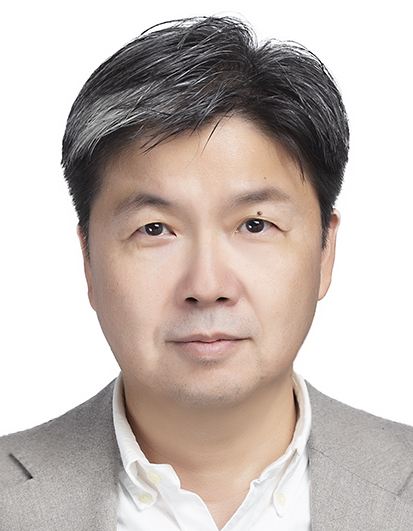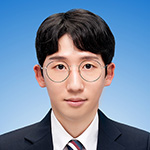[인터뷰]이혁재 대한전자공학회 회장-“AI반도체 韓 미래 먹거리, SW 경쟁력 보완 必”
기사입력 2023.06.22 14:54
“AI반도체 韓 미래 먹거리, SW 경쟁력 보완 必”
대한전자공학회, 비대면 영상 활용 교육 프로그램 계획
28일 하계학술대회 개최, 국내 AI반도체 개발 현황 공유
이혁재 교수 연구팀서 유망 AI반도체 'PIM' 新구조 연구
대한전자공학회, 비대면 영상 활용 교육 프로그램 계획
28일 하계학술대회 개최, 국내 AI반도체 개발 현황 공유
이혁재 교수 연구팀서 유망 AI반도체 'PIM' 新구조 연구
[편집자주]최첨단 IT 시대를 맞이하며 공학 기술 경쟁이 심화하고 있다. 반도체를 위시한 △이차전지 △자율주행 △인공지능 △차세대 통신 △양자 컴퓨팅 등 각계 각 분야에서 기술 개발과 인력 양성이 시급한 형국이다. 이에 따라 첨단 인재 양성의 기반 토대인 대학과 학회를 중심으로 그 중요성이 날로 커지는 가운데 한국 정보통신 분야의 역사와 전통을 자랑하는 대한전자공학회의 이혁재 학회장(서울대 전기정보공학부 교수 겸 서울대 시스템반도체 산업진흥센터 센터장)을 만나 반도체 산·학·연 동향과 미래에 대해 이야기를 나눠봤다.
 ■ 간단한 자기소개 부탁드린다
■ 간단한 자기소개 부탁드린다서울대학교 전기·정보공학부 학부장을 맡고 있으며, 시스템 반도체 설계 분야의 연구 및 교육을 해오고 있다
■ 대한전자공학회 학회장으로 현재 학회를 이끌고 계신데, 대한전자공학회에 대한 간단한 소개와 더불어 올해 학회에서 집중하는 부분은 무엇인지 설명 부탁드린다
대한전자공학회는 1946년에 설립된 정보통신분야의 가장 전통 있는 학회이다. 특정한 분야에 특화된 다른 학회와는 달리 대한전자공학회에서는 △반도체 △통신 △컴퓨터 △인공지능 △신호처리 △산업전자 △로봇 등의 다양한 분야를 아우르는 학술활동을 하고 있다.
올해는 산업체 회원사에서 필요로 하는 교육을 지원하는 업무를 다양하게 준비하고 있다. COVID-19로 인해 지난 2년간 대학에서는 온라인 교육을 했고, 이러한 과정에서 교육 동영상들을 많이 확보했다.
그간의 교육 동영상들을 활용해 교육 프로그램을 만들고, 이를 산업체 회원사에 근무하는 직원들의 재교육에 활용하고자 준비하고 있다. 회사 직원들이 부족했던 지식을 근무시간 이후에 동영상을 통해서 스스로 공부할 수 있는 기회를 제공하고자 한다.
■ 오는 6월 28일부터 하계학술대회가 시작된다. 이번 학술대회서 발표될 내용들 가운데 주목할 만한 발표에 대해 소개 부탁드린다
올해는 인공지능과 반도체 분야가 주목을 받고 있고, 이와 관련된 다양한 연구 및 개발 결과들이 발표될 예정이다.
특히, 회사에서 최신 개발 결과를 발표하는 특별 세션들이 많이 구성되어 있는데, △삼성전자 메모리 사업부 △SK하이닉스 △네이버 클라우드 △삼성전기 △현대모비스 등의 기업에서 발표한다.
또한, LG전자에서 개발한 로봇 시연이 있고, 시스템반도체 분야 기업들이 15개사가 참여하는 전시회를 개최해서 우리나라 시스템반도체 가운데 특히나 최신 인공지능 반도체의 개발 현황을 공유할 수 있는 자리도 마련했다.
■ 서울대 시스템반도체 산업진흥센터의 센터장도 겸임하고 계신다. 다방면에서 반도체와 첨단 산업 발전에 깊이 공헌한 활동들 가운데 최근 기억에 남는 성과들과 이에 대한 생각들이 궁금하다.
서울대 시스템반도체 산업진흥센터에서는 중소벤처기업부의 지원을 받아서 국내 시스템반도체 기업들을 지원하는 역할을 맡고 있다.
최근에 시스템반도체 분야에 많은 새로운 기업들이 창업했다. 이들 기업들의 초기 성장을 지원하고 있으며, 가능성이 큰 기업들이 상당히 많이 있어 앞으로 성장이 기대된다.
센터에서는 1년에 4회 ‘상생 포럼’을 개최해 시스템반도체 생태계 기업들의 현황을 논의하고, 네트워킹을 하는 자리를 마련하고 있다. 초기 기업들이 단기간에 많은 기업들과 교류를 할 수 있는 기회를 마련해서 이러한 프로그램이 ‘스타트업의 성장에 도움이 되지 않았을까’ 하는 생각이 들어 보람을 느끼곤 한다.
서울대 전기·정보공학부에 재직하면서 반도체 인력 양성의 필요성을 많이 느껴 왔으며 이를 위해 노력해왔다. 그 결과 최근 서울대 내 첨단융합학부가 신설되고 차세대 지능형 반도체 전공 과정이 생기게 됐다.
또한, 매년 80명의 타전공 학생을 대상으로 반도체를 교육하는 ‘인공지능 반도체 공학’ 연합전공을 신설했다. 이는 서울대 내에서 많은 학생들이 지원을 하며 큰 인기를 끌고 있다.
차세대반도체 혁신공유대학 사업단장으로서 서울대뿐 아니라 타 대학의 학생들을 대상으로 하는 반도체 교육을 실시하고 있다. 200명 이상의 타 대학 학생을 서울대에서 반도체 교육을 실시하면서 대학교 간 장벽을 허무는 교육이 이뤄지고 있다. 이를 통해 우리나라 대학 입시 문제 해결에 어느 정도의 기여를 할 수 있지 않을까 하는 생각이 든다.
■ 챗GPT 흥행과 함께 AI 돌풍이 산업계 및 시장에 거세게 불고 있다. AI반도체가 차세대 미래먹거리로 주목받고 있는데 앞으로의 반도체 미래 전망은 어떠하며, 국내 팹리스는 어떤 대비를 해야 하는지 조언한다면?
인공지능 반도체는 미래 먹거리이다. 현재는 미국의 엔비디아가 시장을 장악하고 있지만, 아직은 경쟁의 시작 단계라고 생각한다. 우리나라에도 인공지능 반도체를 만드는 유망한 벤처 회사들이 많이 있으므로 이들이 성장한다면 경쟁해 볼 만하다고 생각한다.
단, 우리나라 기업들이 하드웨어의 경쟁력은 어느 정도 갖추고 있는 반면, 소프트웨어 경쟁력이 부족하기에 이를 시급히 보완하는 것이 필요하다.
■ 서울대서 이끌고 계신 연구팀에 대한 소개와 더불어 최근 주목할 만한 연구 성과들은 무엇이 있는지 궁금하다
인공지능 반도체 분야 중에서 유망한 분야가 PIM (Processing-in-Memory)이다. 메모리와 프로세서를 하나의 칩으로 만드는 기술이다. 기존의 반도체는 메모리와 프로세서가 별도의 칩으로 만들어지고, 이 2개의 칩 사이에 데이터를 주고받는 과정에서 전력소모가 많이 발생하고 성능도 떨어지게 된다.
이러한 단점을 극복한 것이 PIM인데, 차세대 인공지능 반도체 기술로 많이 연구되고 있다. 저희 연구실에서 GPT와 같은 거대 인공신경망에 효율적으로 실행될 수 있는 새로운 PIM 구조에 대한 연구를 수행하고 있다. 거대 인공신경망에서 요구하는 데이터의 양을 줄이면서도, 성능이 떨어지지 않게 할 수 있는 구조에 대한 연구를 하고 있다.
■ e4ds news 독자들에게 마지막으로 한 말씀 부탁드립니다
반도체 산업은 현재 인력이 매우 부족한 상황이어서 다양한 수준에서 많은 취업의 기회가 있다.
반도체 전공이 아닌 분을 대상으로 반도체 교육을 하는 단기 프로그램도 많이 운영되고 있다.
반도체 분야에 관심을 많이 가지고 전공으로 선택해 주시기 바라며, 관련 산업체에도 많이 취업해 주길 바란다.
감사합니다.
많이 본 뉴스
[열린보도원칙] 당 매체는 독자와 취재원 등 뉴스이용자의 권리 보장을 위해 반론이나 정정보도, 추후보도를 요청할 수 있는 창구를 열어두고 있음을 알려드립니다.
고충처리인 장은성 070-4699-5321 , news@e4ds.com

.jpg)




